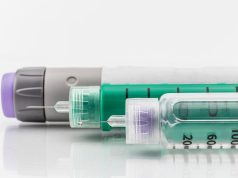First approval for a therapy aimed specifically to treat the rare pediatric cancer
TUESDAY, March 10, 2015 (HealthDay News) — Unituxin (dinutuximab) has been approved by the U.S. Food and Drug Administration to treat children with high-risk neuroblastoma.
Unituxin has been sanctioned for use in combination with surgery, chemotherapy, and radiation, the FDA said in a news release. The drug’s safety and effectiveness were evaluated in clinical studies involving 226 children with neuroblastoma. Three years after treatment began with a regimen that included Unituxin, 63 percent of participants were free of tumor growth or recurrence, compared to 46 percent who received a similar regimen that included isotretinoin rather than Unituxin.
Unituxin’s label includes a boxed warning of irritated nerve cells, which could cause severe pain and nerve damage. The drug also may cause serious reactions, including upper airway swelling, difficulty breathing, and low blood pressure. The drug’s most common side effects included severe pain, fever, low platelet counts, allergic-like reactions, low blood pressure, and hyponatremia.
“Unituxin marks the first approval for a therapy aimed specifically for the treatment of patients with high-risk neuroblastoma,” Richard Pazdur, M.D., director of the Office of Hematology and Oncology Products in the FDA’s Center for Drug Evaluation and Research, said in the news release. “Unituxin fulfills a critical need by providing a treatment option that prolongs survival in children with high-risk neuroblastoma.”
Unituxin is marketed by United Therapeutics, based in Silver Spring, Md.
Health News Copyright © 2015 HealthDay. All rights reserved.








